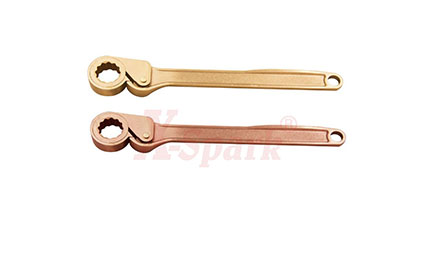Non-Sparking Tools Suppliers will share this article with you.
In every country, a safe and health-friendly workplace is essential. In the United States, the Occupational Safety and Health Administration (OSHA) instructs employers to ensure that the workplace is safe and to ensure their safety and well-being. All industries are governed by OSHA’s directives. The chemical industry is no exception. There are specific guidelines for the use of non-sparking tools in the chemical equipment industry using acetylene. Do you want to know how these tools help acetylene plant owners comply with OSHA? What are the benefits of these tools?
According to OSHA’s hand and portable power tools and equipment standard, employers are required to provide their employees with safety equipment and tools. It also recommends that employers keep non-sparking tools in a safe and usable condition every time. The standard requires employers to avoid the direct use of non-sparking hand tools and acetylene, especially in the presence of moisture.
Although it is not recommended to use non-sparking tools and direct use of chemicals such as acetylene, there are still many benefits.
As the name suggests, these tools provide fire and explosion protection in environments where flammable chemicals, fuels, materials, residues, or gases may be present. Many times, these tools are also referred to as "spark-reduced", "spark-proof" and "spark-resistant".
The spark-proof tools are made of various non-ferrous metal materials, such as bronze, brass, Monel metal (copper-nickel alloy), copper-beryllium alloy (beryllium bronze), and copper-aluminum alloy (aluminum bronze). Today, the most commonly used hand tools are made of alloy steel.

non-sparking tools
The following are several benefits of using non-sparking tools in chemical plants that use acetylene equipment or acetylene gas.
1. Corrosion resistance: Most of the non-sparking tools made of the above-mentioned metals exhibit strong corrosion resistance due to their structural materials. In addition to environments full of acetylene, these tools are also suitable for applications that may come into contact with alkalis, acids, and various other types of chemicals.
2. Non-magnetic: Magnetism is usually associated with ferrous metals. As you can see, most non-sparking tools are made of non-magnetic metals. This helps reduce the chance of magnetic or electronic interference in factories that use acetylene. In addition, the non-sparking tools used in acetylene will not affect the setup of the instrument.
3. Durability: As mentioned earlier, today, many non-sparking tools are made of copper alloys. It is often mentioned that low tensile strength steel is used for this kind of construction. However, this does not mean that these tools are softer. Like any ordinary tools, most of these non-sparking tools are durable and strong enough to withstand the frequent abuse of chemical plants.
For the above reasons, non-spark tools are considered safe for users in a volatile environment. In addition, keeping these tools in good working condition is also very important.
The following are tips for easy-to-follow maintenance tools to prevent sparks:
1. The tools must be cleaned after each use to avoid contaminants from depositing on the surface.
2. To perform any task in the acetylene plant, the appropriate size tool must be used. This will help prevent the tool from slipping from hand and chances of sparking.
3. Do not store the tools in places where they may be exposed to wet acetylene.